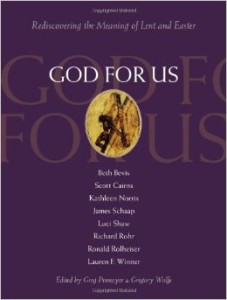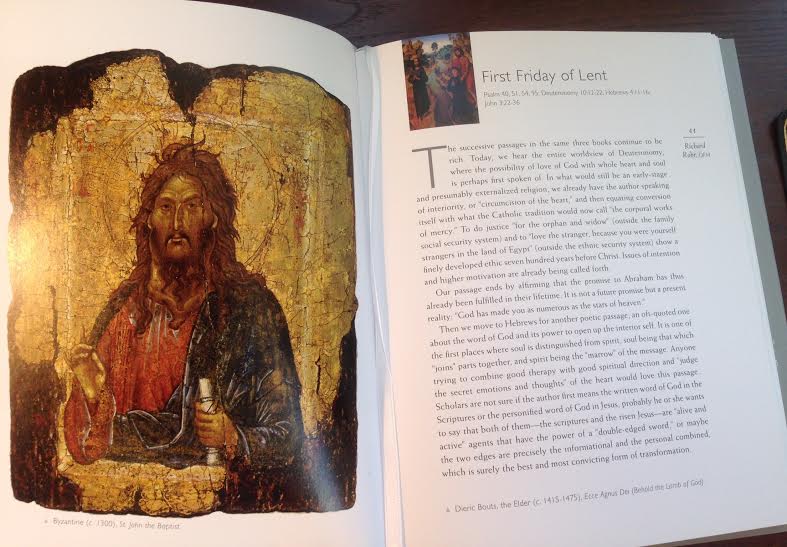 Just over a year ago I did a post, “God For Us,” where I introduced a wonderful book I had discovered by the same name. My friend, Scott Cairns, is one of the authors, which drew my interest immediately. And one of the editors, Greg Pennoyer, is Orthodox. But the book is a blend of Eastern and Western spiritual writings to help us through our Lenten journeys. Interestingly, I didn’t know who Richard Rohr was at the time, and he’s also a contributor, so I’m looking forward to reading his chapters this year.
Just over a year ago I did a post, “God For Us,” where I introduced a wonderful book I had discovered by the same name. My friend, Scott Cairns, is one of the authors, which drew my interest immediately. And one of the editors, Greg Pennoyer, is Orthodox. But the book is a blend of Eastern and Western spiritual writings to help us through our Lenten journeys. Interestingly, I didn’t know who Richard Rohr was at the time, and he’s also a contributor, so I’m looking forward to reading his chapters this year.
In the Preface, Pennoyer says:
In Lent we learn that the meaning of life is not dependent upon the fulfillment of our dreams and aspirations. Nor is it lost within our brokenness and self-absorption.
I love that. In an email I read from our pastor this morning, he shared a list of things to fast from and feast on during Lent (which came from a Greek Orthodox priest, Father Milton Gianulis, formerly at Annunciation Church here in Memphis). Pennoyer’s words remind me of this one item in Father Milton’s list:
Fast from self-concern; feast on compassion for others.
With Pennoyer’s book—as with Father Milton’s list—the emphasis is on positive actions and attitudes rather than rules. It’s about preparing our hearts to receive good things. As Pennoyer continues:
Lent cleanses the palate so that we can taste life more fully. It clears the lens so that we can see what we routinely miss within our circumstances.
Today’s reading, “First Friday of Lent,” is by Richard Rohr. Each reading has Scriptures at the top, so I read them first. They aren’t the same scriptures on the Orthodox “list” so I’m following a more Western tradition on some days. He reminds us that Deuteronomy (10:12-22) promotes a worldview where “the possibility of love of God with whole heart and soul is perhaps first spoken of.” And then he moves to the passage in Hebrews (4:11-16) saying:
Anyone trying to combine good therapy with good spiritual direction and ‘judge the secret emotions and thoughts of the heart’ would love this passage.

And finally he moves on to the passage in the Gospel of John (3:22-36) that contains some of the teachings of John the Baptist, whose icon is portrayed at the beginning of the chapter. (I do love the artistic elements in this beautiful book.) In the Orthodox tradition, the priest blesses our homes just before the beginning of Great Lent. As my husband (who is a priest) sprinkled our walls with holy water last week and we sang, “When Thou O Lord wast baptized in the Jordan, the worship of the Trinity was made manifest,” and then he sprinkled me with some of the holy water, I felt our dwellings preparing for the spiritual journey ahead—our physical dwellings being our home and our bodies. Because we’re not just spirit; we are physical beings.
Rohr summarizes the day’s reading:
The interior and transformative journey that the first two readings point towards—the awakening of soul, the circumcision of heart, the baptizing of body, the release of spirit—has now met it mark in this world. The economy of this world has become an economy of grace, and both John and Jesus are here to wash away any remnants of merit, atonement, or animal sacrifice. The bridegroom instead inaugurating a wedding feast.